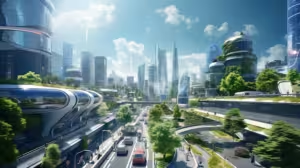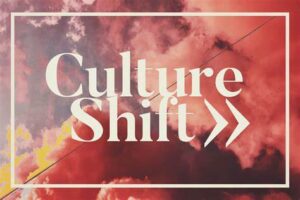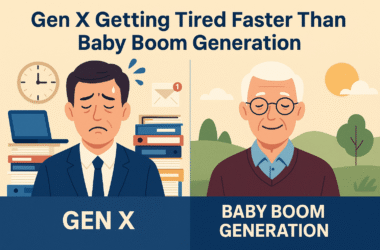As India approaches 2025, the country’s lifestyle is evolving rapidly, driven by technology, health trends, and cultural shifts. Smart devices, remote work, and wellness practices reflect how Indians are embracing modern values. However, tradition remains central to daily life. From adopting sustainable living to reshaping family dynamics, India’s transformation is dynamic. This blog explores the key lifestyle shifts Indians are experiencing as they prepare for 2025.
Technological Integration into Daily Life
In recent years, India has seen a digital revolution that continues to shape daily life. The widespread use of smartphones and the internet has simplified tasks like shopping, banking, and paying bills. Online platforms have become an essential part of urban and rural India alike. From food delivery apps to digital payment systems, technology is now indispensable.
As we move closer to 2025, artificial intelligence and smart devices are becoming more common in Indian homes. Voice-activated assistants, smart lighting, and robotic appliances are changing the way people live. Digital literacy is spreading across generations, with even older Indians adapting to mobile apps and online tools. The government’s “Digital India” initiative further drives this shift. By 2025, technology will likely be even more integrated into everyday life, helping Indians manage their homes and work more efficiently.

Work-Life Balance in a Post-Pandemic Era
The COVID-19 pandemic completely redefined how Indians approach work and personal life. Remote work became a necessity during lockdowns, and many companies still offer hybrid models today. The flexibility of working from home has allowed people to prioritize family and personal interests. This has led to a re-evaluation of work-life balance across industries.
However, working from home brings challenges, such as blurred boundaries between work and relaxation. Many people find it hard to unplug from their jobs, which can lead to burnout. To address these challenges, Indian companies are offering mental health support and wellness programs. These initiatives help employees maintain productivity while protecting their well-being. By 2025, the idea of work-life balance may evolve further, especially with co-working spaces emerging in smaller towns.

Focus on Health and Wellness
Health and wellness have become major priorities for Indians, especially after the pandemic. The focus has shifted toward preventive care and holistic health. More people are turning to natural remedies, yoga, and meditation to maintain their well-being. Fitness has become part of daily life, with many incorporating exercise routines, either at home or in gyms.
The demand for organic foods, plant-based diets, and natural products continues to rise. In urban areas, wellness centers and gyms are flourishing, while rural areas are also catching up. Fitness apps and wearable devices have become popular tools to track progress and motivate healthier lifestyles. Mental health awareness has increased significantly, with more people openly discussing mental wellness. Counseling services and mental health apps have gained traction, especially among the youth. By 2025, Indians will likely prioritize health even more, with wellness becoming a central part of daily life.

Cultural Shifts and Modern Values
As India braces for 2025, cultural shifts are becoming more apparent, especially among younger generations. Indians are increasingly blending traditional values with modern, global influences. Indo-western fashion, fusion cuisine, and hybrid entertainment formats are becoming the norm. This reflects a desire to preserve heritage while embracing contemporary trends.

Social media and global media are playing major roles in shaping opinions and behaviors. Sustainability, veganism, and eco-friendly living are gaining popularity, particularly in urban centers. Many are opting for minimalistic lifestyles, making conscious decisions about reducing waste and using eco-friendly products. Family structures are also changing, with nuclear families becoming more common, and gender roles evolving toward greater equality. However, despite these changes, traditional customs and festivals still hold deep significance in everyday life. The balance between tradition and modernity defines the lifestyle shifts Indians are experiencing today.
Utpal Khot
Copyright © Utpal K
1. If you share this post, please give due credit to the author Utpal Khot
2. Please DO NOT PLAGIARIZE. Please DO NOT Cut/Copy/Paste this post
© Utpal K., all rights reserved.
Copyright Notice: No part of this Blog may be reproduced or utilized in any form or by any means, electronic or mechanical including photocopying or by any information storage and retrieval system, without permission in writing from the Blog Author Utpal Khot who holds the copyright.





